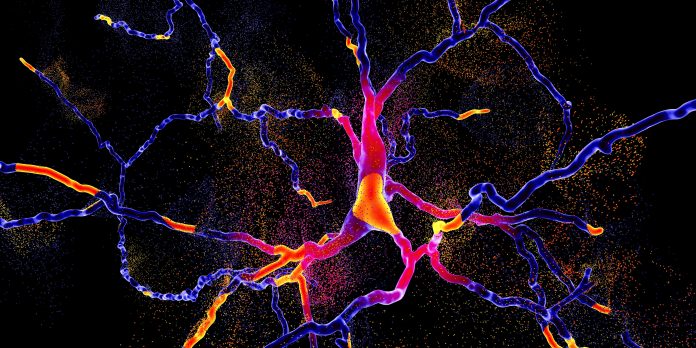
Following up on their progress with the targeted amyotrophic lateral sclerosis (ALS) treatment Qalsody (tofersen), Biogen has made an agreement with NeuroSense Therapeutics that reinforces a biomarker-driven path.
Biogen will help evaluate the effect of NeuroSense’s PrimeC on neurofilament levels in the plasma of participants in PARADIGM—a Phase IIb clinical trial in ALS. Biogen will fund the neurofilament biomarker study and conduct the analysis.
In April of this year, the FDA granted accelerated approval for Qalsody for Superoxide dismutase 1 (SOD1)-ALS. This is the first treatment to target a genetic cause of ALS, and is an ultra-rare form of the disease. Approximately 330 people in the U.S. are living with this condition.
“Today also marks a pivotal moment in ALS research as we gained, for the first time, consensus that neurofilament can be used as a surrogate marker reasonably likely to predict clinical benefit in SOD1-ALS. We believe this important scientific advancement will further accelerate innovative drug development for ALS,” said Christopher A. Viehbacher, president and chief executive officer of Biogen, at the time of the announcement.
Neurofilaments are proteins that are released from neurons when they are damaged, making them a marker of neurodegeneration. They are considered promising biomarkers of ALS because their levels can be significantly increased in these patients. However, the roles of neurofilaments as biomarkers in ALS are so far inconsistent.
Parkinson’s disease (PD) is the second most common neurodegenerative condition after Alzheimer’s disease. Nearly one million people in the U.S. and an estimated 10 million people worldwide are living with PD.
NeuroSense announced the completion of enrollment in PARADIGM, May 15. The study enrolled 69 participants living with ALS in Israel, Italy, and Canada. PrimeC has Orphan Drug Designation with the U.S. Food and Drug Administration (FDA) and the European Medicines Agency (EMA).
PrimeC, is a fixed-dose combination drug comprising ciprofloxacin and celecoxib, which aims to target multiple disease mechanisms, including microRNA dysregulation, iron accumulation and neuroinflammation. PrimeC has been tested in a phase IIa clinical trial in ALS patients, and NeuroSense is currently in preparation for a pivotal phase IIb/III study with PrimeC.
According to the SEC filing, NeuroSense will provide blood samples from the PARADIGM participants to Biogen for biomarker analysis, at several time points. Biogen will evaluate neurofilament levels and provide NeuroSense with the results. NeuroSense will share clinical outcomes and results from other biomarkers being evaluated. The two companies will “jointly explore correlations among endpoints, including biomarkers and clinical outcome measures.”
Biogen receives a right of first refusal for a definitive licensing agreement to co-develop and/or commercialize PrimeC for the treatment of ALS. Intellectual property that is developed in connection with the neurofilament biomarker study will be jointly owned. PrimeC and all related intellectual property will remain under the ownership of NeuroSense.
